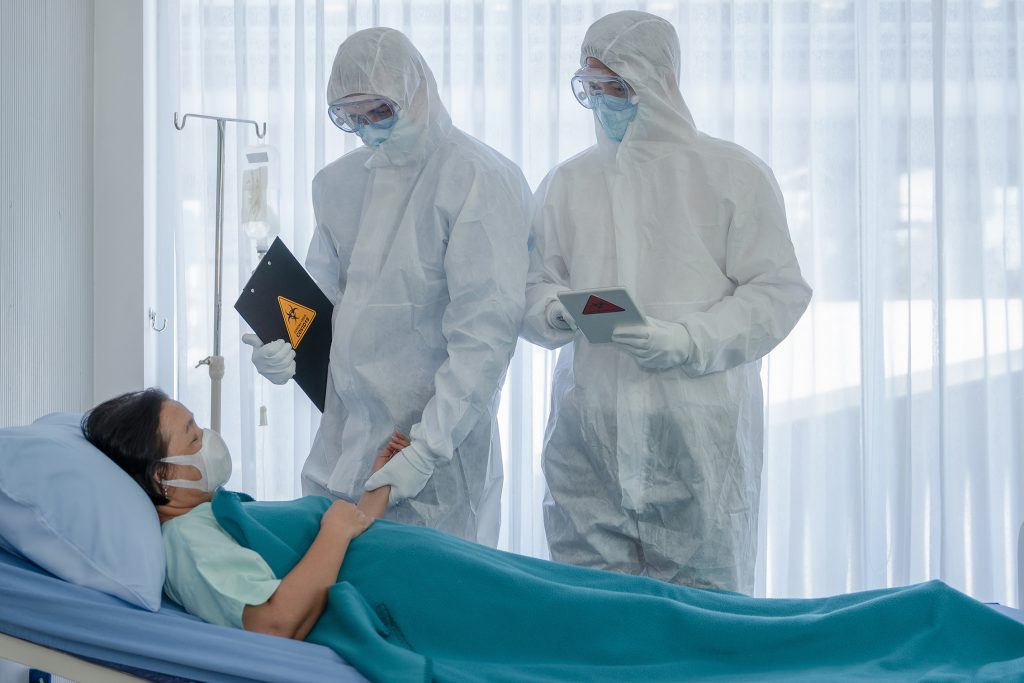IDSA updates to treatment guidelines for COVID-19

The COVID-19 pandemic – caused by the severe acute respiratory syndrome coronavirus 2 (SARS-CoV-2) – has taken the world by storm since the first outbreak in late December 2019 in Wuhan, China. The highly infectious virus is spread through inhalation of or contact with contaminated aerosols, droplets or fomites. The sheer scale of this pandemic has impacted healthcare systems, pointing to a clear gap in the readiness to face future pandemics.1,2 As of 5 April 2021, the global infection numbers stand at more than 131 million with approximately 2.9 million reported fatalities.3 Mortality rates vary across countries and populations, with average estimates at 2% to 3%.1 High-risk populations include the elderly and those with pre-existing medical conditions or co-morbidities, accounting for 50% to 75% of fatal cases.2
Increased efforts to better understand the disease and manage the spread of this pandemic have led to a rapid increase in COVID-19 research, particularly pharmacological treatments. However, these data vary in terms of quality and possible misinformation.4 As such, upon reviewing then-existing peer-reviewed and grey literature, the Infectious Diseases Society of America (IDSA) guideline panel published the IDSA treatment guidelines for COVID-19 in April 2020. The panel has since continually monitored literature to update these guidelines. Here, we share the highlights of their updates as of 18 March 2021, including recommendations for the use of monoclonal antibody treatments.
The IDSA panel’s updated recommendations include4:
- Tocilizumab should be used for hospitalised patients with progressive to severe COVID-19.
- An analysis of eight randomised controlled trials found that the use of tocilizumab reduced mortality rates of hospitalised patients with mild and/or progressive to severe forms of COVID-19. The data from the RECOVERY and REMAP-CAP trials served as the basis of this conditional recommendation.
- Ivermectin should not be used outside of clinical trials (for both hospitalised patients and outpatients).
- Bamlanivimab in combination with etesevimab should be used for mild-to-moderate COVID-19 outpatients who are at high-risk of progression to severe disease.
The guidelines recommend against the use of bamlanivimab monotherapy for hospitalised patients due to limited evidence on its efficacy.4 As of 24 March 2021 the United States government and Eli Lilly have halted the use of bamlanivimab monotherapy due to the emergence of SARS-Cov-2 variants which are resistant to this monoclonal antibody therapy.5 The FDA thus advises healthcare providers to only use bamlanivimab in combination with other monoclonal antibody therapies such as etesevimab, or apply alternative authorised monoclonal antibody treatments that the virus is likely to stay sensitive to e.g., combination therapy of casirivimab and imdevimab.5
At the recent IDSA media briefing on 18 March 2021, Dr Adarsh Bhimraj from the COVID-19 treatment guidelines expert panel stressed the importance of maintaining efforts to reduce the spread of this pandemic, such as wearing masks, social distancing and continued surveillance and research.6 Dr Rajesh Gandhi, also a member of the expert panel, emphasised that treatments must be accessible to all and cannot be siloed to effectively tackle this world health crisis.6
References:
- Wu Y, et al. Journal of the Chinese Medical Association 2020;83:217-220.
- Singhal T. Indian journal of pediatrics 2020;87:281–286.
- World Health Organisation. WHO Coronavirus (COVID-19) Dashboard. Available at: https://covid19.who.int/. Accessed 6 April 2021.
- Bhimraj A, et al. Infectious Diseases Society of America 2021;version 4.1.1
- U.S. Department of Health & Human Services. Update on COVID-19 variants and impact on bamlanivimab distribution. Available at: https://www.phe.gov/emergency/events/COVID19/investigation-MCM/Bamlanivimab/Pages/default.aspx. Accessed 6 April 2021.
- Infectious Diseases Society of America. IDSA Media Briefing: Update on COVID-19 Treatment Guidelines. Available at: https://www.idsociety.org/multimedia/videos/idsa-media-briefing-update-on-covid-19-treatment-guidelines/. Accessed 7 April 2021.










